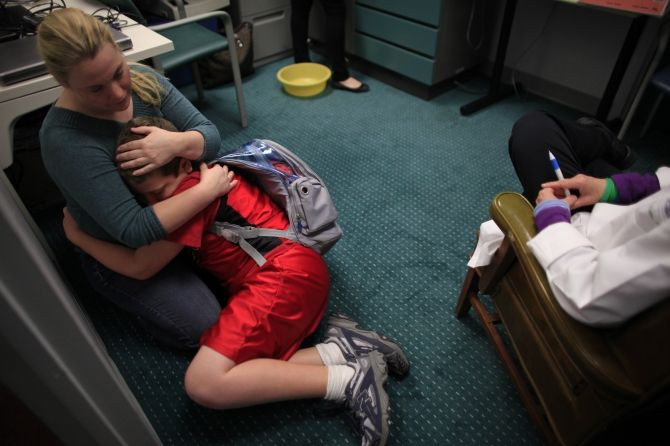Parents Who Are Overprotective Can Increase Their Child's Chance of Developing Anxiety

While many parents who are overprotective believe that coddling their child is in the best interest of the child, research demonstrates too much coddling during the early stages of life can increase the child's chance of developing anxiety later in life.
According to lead researcher Professor Jennifer Hudson, from the Centre for Emotional Health at Macquarie University, parents who are overly involved or over protective are known to participate in "helicopter parenting."
Hudson and a team of researchers conducted a study that monitored 200 children. The first stage of the study, researchers assessed children at the age of three and four years old. Five years later, the children were assessed again.
“The study found that the strongest predictor of anxiety at age nine was the child’s anxiety at age four,” Hudson said.
Researchers observed mothers while interacting with their child and asked them to respond to statements such as "I determine whom my child will play with’ and "I dress my child even if he/she can do it alone." Results demonstrated preschool children who exhibit anxiety and are withdrawn were children of mothers who were overly involved.
“Our overall findings show that preschool children are more likely to have a clinical anxiety diagnosis in middle childhood in the group of mothers who were overinvolved or too protective,” she said.
Furthermore, results also suggested that children of mothers who have had anxiety disorders or depressive disorders have a higher risk of suffering from anxiety in middle childhood.
Hudson hopes the information provided in this study will assist mental health experts to identify appropriate intervention programs. Though many parents believe their child will outgrow their anxiety issues, without early intervention anxiety is more likely to continue to fester into middle childhood.
“It is increasingly recognized that preschool children can experience clinically significant anxiety. Now that we know which factors are likely to increase a child’s chances of developing anxiety, we can intervene more effectively by targeting those variables that can reduce a child’s risk,” she said.



























